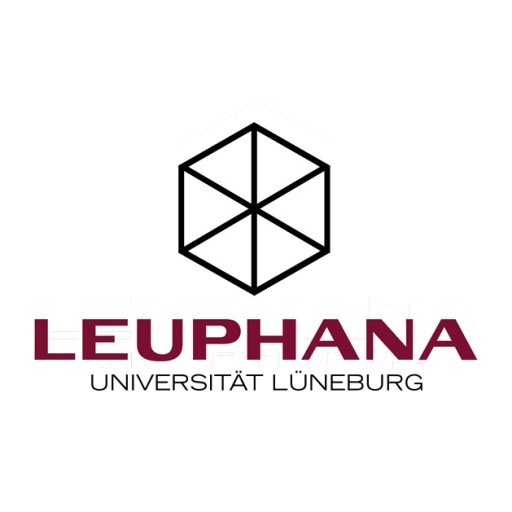Photos of university / #tu.muenchen
Over the last decades the topic of sustainability has become increasingly important. Water, energy and food are limited commodities. For this reason careful utilization of them is indispensable for humanity. Everybody is directly involved by consuming daily goods and services. This specialization deals with topics about consumer behavior, but also with the impact of companies and governments with regard to the concept of sustainable consumption. In this context, students deal with topics of sustainable consumption and marketing.
- Consumer Behaviour
- Consumer Behaviour Research Methods
- Consumer Economics & Policy
- Research Methods
- Advanced Environmental and Natural Resource Economics
- Climate Change Economics
- Corporate Social Responsibility
- Corporate Sustainability
- Environmental and Natural Resource Economics
- International Environmental Policy and Conflict Resolution
- Value Chain Economics
- Advanced Planning in Supply Chains - Illustrating the Concepts using an SAP APO Case Study
- Advanced Seminar in Entrepreneurial Behaviour
- Advanced Topics in Marketing, Strategy and Leadership
- Applied Statistics and Econometrics
- Basics of Advanced Planning and Supply Chain Management
- Behavioral Economics
- Business Plan Grundlagenseminar (UnternehmerTUM)
- Case Study Seminar: Entrepreneurial Strategy
- Consumer Law (in German)
- Consumer oriented Project Work
- German as a Foreign Language
- International Commodity Markets and Trade Policy
- Mathematics for Economists
- Negotiation Strategies
- Research Methods in Entrepreneurship
- Research Seminar in Strategy and Organization
- Seminar Concepts in International Entrepreneurship
- Advanced Seminar in Entrepreneurial Behavior
- Abstract,
- Degree certificate and Diploma or Subject and grade transcript of studies (certified copy),
- Essay,
- confirmations of apprenticeships,
- internships or other qualifications when appropriate,
- most current photo (as for ID),
- complete and current Résumé (CV),
- letter of motivation,
- Proof of at least one year of qualifying employment in a field relevant to your designed course of study,
- passport (copy),
- proof of English language proficiency (certified copy)
There is no specific information available regarding the financing options for the Sustainable Consumption program at the Technical University of Munich. Typically, funding for students enrolled in master's programs at TU Munich can be obtained through various channels. German students often benefit from low or no tuition fees, depending on their nationality and residency status, with some costs covered by the state, thus reducing financial burdens related to tuition. International students, however, usually need to pay semester fees, which include administrative costs, student union fees, and public transportation tickets, generally amounting to a few hundred euros per semester.
In terms of financial aid, TU Munich offers a range of scholarships, grants, and loan opportunities for both domestic and international students. Some scholarships are awarded based on academic excellence, leadership qualities, or financial need, and applicants can also explore external funding options such as DAAD (German Academic Exchange Service) scholarships, which are available to international students planning to study in Germany. Additionally, students may seek part-time employment opportunities within the university or in the surrounding Munich area to support their living expenses.
International students can also consider securing funding through bilateral agreements between their home country and Germany, which sometimes include scholarships or financial support programs. For students from the European Union, access to the German student loan market and funding through EAS scholarships might be available. Moreover, TU Munich provides guidance and counseling services to assist students in identifying appropriate financial aid options tailored to their individual circumstances.
Overall, while direct study-specific financing information for the Sustainable Consumption program at TU Munich is not available, prospective students are encouraged to explore university resources, government grants, external scholarships, and part-time employment opportunities to support their studies financially.
The Master's program in Sustainable Consumption at the Technical University of Munich is designed to equip students with the knowledge and skills necessary to address the complex challenges related to sustainable lifestyles, responsible consumer behavior, and environmentally conscious production and consumption patterns. This interdisciplinary program combines elements from environmental sciences, economics, social sciences, and policy studies to provide a comprehensive understanding of sustainability issues in everyday consumption. Students explore topics such as resource efficiency, life cycle assessment, eco-design, circular economy, and sustainable supply chains. The curriculum emphasizes both theoretical foundations and practical applications, encouraging students to develop innovative solutions that can influence consumer habits, corporate practices, and policy frameworks. The program prepares graduates for careers in consultancy, industry, public administration, and non-governmental organizations focused on sustainability and environmental protection. through coursework, project work, internships, and thesis research, students gain hands-on experience and develop competencies in sustainability assessment, stakeholder engagement, and sustainable development strategies. The program is tailored for individuals interested in making a tangible impact on reducing ecological footprints while promoting social well-being. The language of instruction is predominantly English, making the program accessible to international students. The university's strong emphasis on research and collaboration with industry partners ensures that students benefit from the latest developments in sustainable consumption and are well-positioned to contribute to innovation in this vital field. Overall, the program aims to foster a new generation of sustainability leaders equipped with advanced knowledge, practical skills, and a global perspective on promoting sustainable lifestyles for future generations.








